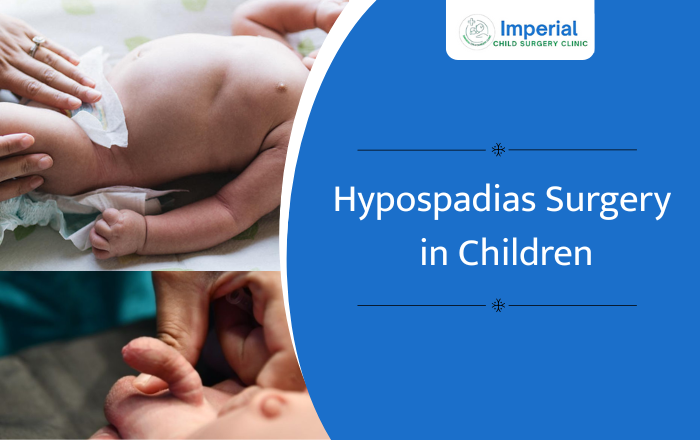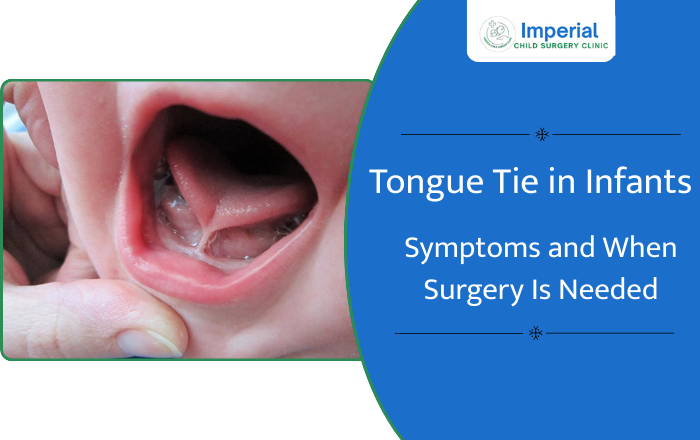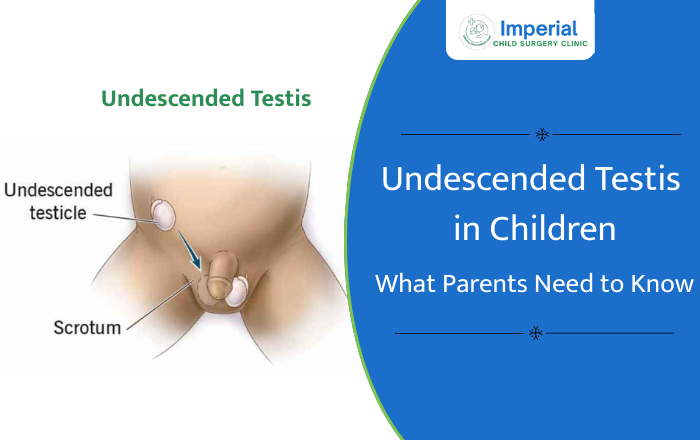When you first hear that your baby has hypospadias, it can feel overwhelming. As a parent, you want the best for your child, and any medical condition can raise a lot of questions and worries. The good news is that hypospadias is treatable, and many children go on to live healthy, normal lives after surgery.
This guide is here to help you understand what hypospadias is, why surgery might be needed, what to expect before and after the procedure, and how to choose the right pediatric surgeon for your child.
What Is Hypospadias and Why Does It Happen?
Hypospadias is a condition in which the opening of the urethra (the tube that carries urine out of the body) is not in the usual spot at the tip of the penis. Instead, it may be located along the underside, anywhere from just below the tip to the base of the shaft or even near the scrotum.
This condition happens during pregnancy, as the baby’s body develops. Doctors don’t always know the exact cause, but it could be linked to hormones, genes, or environmental factors.
Signs and Symptoms Parents Should Look For
Most of the time, hypospadias is noticed soon after birth. Here are some signs that may be present:
- The opening of the urethra is not at the tip of the penis.
- The penis curves downward (a condition called chordee).
- The foreskin may appear “hooded” or incomplete.
- Your baby might have trouble pointing the urine stream straight.
If you notice these signs, a pediatrician or pediatric surgeon can confirm the diagnosis.
When and Why Surgery Is Recommended
Surgery is usually recommended to correct hypospadias so that your child can urinate properly, reduce the risk of future problems, and improve the appearance of the penis. The best time for surgery is often between 6 to 18 months of age, when babies are less likely to remember the experience and healing is quicker.
Early correction helps your child avoid issues later in life, such as difficulty standing to pee or concerns about body image during school years and beyond.
What Happens During Hypospadias Surgery?
The surgery involves moving the urethral opening to the correct place at the tip of the penis. The surgeon may also straighten the penis and reshape the foreskin if needed. The procedure is done under general anesthesia, so your child will be asleep and won’t feel pain during it.
Surgery usually takes a few hours, and most children go home the same day or after a short stay in the hospital. A small tube (called a catheter) may be left in place for a few days to help with urination while healing begins.
Post-Surgery Recovery: What Parents Need to Know
After surgery, your child may be a little fussy, and that’s normal. There may be some swelling and bruising, but these typically subside within a few days.
Here’s what parents should do after surgery:
- Keep the area clean and dry.
- Follow instructions on caring for the catheter.
- Give medicines as prescribed to manage discomfort.
- Watch for signs of infection like fever, redness, or unusual discharge.
Most children recover well in 1 to 2 weeks and can return to their usual activities soon after.
Possible Risks and Long-Term Outcomes
Like any surgery, hypospadias repair can have some risks. These might include:
- Mild bleeding
- Infection
- The need for a second surgery if healing doesn’t go as expected
However, in most cases, surgery is successful, and the child grows up without further issues. The goal is for your child to have normal urine flow and feel confident about their body as they grow older.
Choosing the Right Pediatric Surgeon Matters
The success of the surgery depends a lot on the skills and experience of the surgeon. It’s important to choose someone who has performed many hypospadias surgeries and understands the needs of young children.
If you’re in or around Pune, one trusted name in this field is Dr. Aamer Iqbal, a pediatric surgeon who sees patients at Imperial Child Surgery Clinic.
Meet Dr. Aamer Iqbal – Hypospadias Surgeon in Pune
Dr. Aamer Iqbal is known for his calm approach and clear communication with parents. He has years of experience working with children who need surgery, including those with hypospadias. As a trusted Hypospadias Surgeon in Pune, he’s helped many families navigate what can feel like an overwhelming situation with confidence and clarity.
You can visit Imperial Child Surgery Clinic, where Dr. Iqbal consults, to discuss your child’s condition and get answers to all your questions in a friendly, supportive setting.
Frequently Asked Questions (FAQ)
Q1: Is hypospadias surgery painful for babies?
A: The surgery is done under anesthesia, so your child will not feel anything during the procedure. Pain afterward is usually mild and managed with medication.
Q2: Can hypospadias go away on its own?
A: No, it does not improve on its own. Surgery is needed to correct it.
Q3: Will my child have any problems later in life?
A: Most children do very well after surgery and do not have long-term problems. Urine flow and appearance are usually normal.
Schedule Your Consultation with Dr. Aamer Iqbal Today
If your child has been diagnosed with hypospadias, don’t wait to get the right help. Book a consultation with Dr. Aamer Iqbal at Imperial Child Surgery Clinic in Pune. Early treatment makes a big difference.





